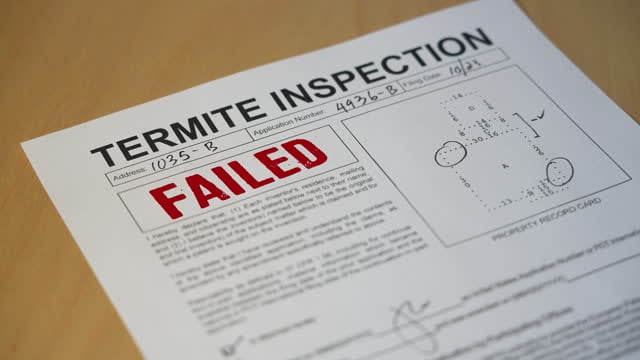What Happens to an Easement When a Property is Sold in CA?
What happens to an easement when a property is sold in California? Well, it depends on the type of easement.
The potential problem lies in the uncertainty surrounding the rights and obligations tied to these easements. Without clarity, buyers and sellers may face complications, leading to disputes and legal challenges.
But worry not! In this article, exploring the ins and outs of various easement types and legal stuff, we give you the scoop to handle these situations without a hitch.
Table of Contents
What Happens to an Easement When a Property Is Sold in California?
When it comes to real estate transactions in California, understanding the law and implications of easements is crucial for both buyers and sellers. Easements grant certain rights to someone or entities over another person’s property, and these rights don’t automatically disappear when the property changes hands.
In California, there are two main types of easements:
- Easement appurtenant
- Easement in gross
Selling a home with an easement can pose unique challenges. Prospective buyers may have concerns about existing easements, real estate disclosures in California, and potential title problems and resolution, making transparency crucial.
If you find yourself in a situation where your piece of property (also known as the dominant estate) has an easement, whether it’s easement appurtenant or easement in gross, it’s essential you openly communicate the nature and terms of any easements linked to the property.
At SoCal Home Buyers, we value clear and transparent real estate transactions, especially when easements are involved and selling a home as-is in California.
If you’re in Southern California and want to sell your home with an easement for cash, get in touch with us today.
When Do Easements Transfer to New Owners?
So, does an easement transfer to a new owner?
In the case of appurtenant easements, the answer is yes since appurtenant easements are tied to the land, not the individual property owner.
When a property with such an easement is sold, it typically transfers to the new owner, becoming part of the property and benefiting the land.
For instance, if a property has an easement allowing access to a neighboring parcel, this right usually passes to the new owner during a property sale, ensuring the easement’s intended purpose endures across ownership changes.
When Are Easements Not Transferable?
Unlike appurtenant easements, gross easements are often tied to a specific individual or entity rather than the land itself.
These easements grant personal rights and privileges to an individual, such as the right to use a specific portion of the property for personal needs or business purposes. Unlike appurtenant easements, gross easements do not automatically transfer to new owners when the property changes hands.
In the case of gross easements, when the property is sold, the new owner does not automatically inherit the benefits or burdens associated with the gross easement. The continuation of such easements typically depends on the specific terms outlined in legal agreements or contracts.
Are There Any Circumstances When Appurtenant Easements Are Not Transferable?
In most cases, appurtenant easements seamlessly transfer with the dominant property, even if not explicitly mentioned in the transferring document. However, it’s important to note that the document transferring the dominant estate may contain provisions expressly stating that the easement shall not pass with the land.
Our Conclusion
Knowing the ins and outs of easements in California real estate is a big deal.
Whether you’re dealing with appurtenant or gross easements, understanding their impact on property transactions is key. For sellers looking to sell your home fast, it’s crucial to lay out all easement details for potential buyers, addressing concerns and keeping things clear.
At SoCal Home Buyers, we’re one of the highly reputed companies who buy homes for cash, customized to your situation.
If you’re considering selling a house with an easement in Southern California, contact us today. Our team is dedicated to ensuring a clear and informed journey through real estate.
Additional reading: Fair market value of property
FAQs
Are Easements Always Permanent?
Easements are not inherently permanent, but courts often presume perpetual duration unless specified otherwise in the creating document. To prevent potential issues, individuals granting easements should explicitly state the permanency of the easement in the relevant legal documents, ensuring clarity regarding its duration and avoiding ambiguity in the future.
Can You Sell an Easement?
Selling an easement is similar to selling land but with some distinctions. When initiating the process, craft a contract similar to a land sale. Clearly state the easement’s purpose unless you’re indifferent to the new owner’s plans. This ensures transparency, aligning everyone’s expectations and avoiding potential issues in the future.
Are Easements Transferable to Another Person or Company?
Easements in gross, typically benefiting an individual or company, are generally non-transferable, with exceptions. For example, the new entity may inherit easements in utility company mergers. Despite exceptions, the standard rule is that easements in gross cannot be transferred, safeguarding the exclusive rights of the intended beneficiary.
Do Perpetual Easements Transfer to New Owners?
Perpetual easements usually transfer with the land when it changes ownership. However, it’s important to note that while the property with the easement is transferable, the holder of the easement holds a personal right and is restricted from transferring the easement to another individual or company.









